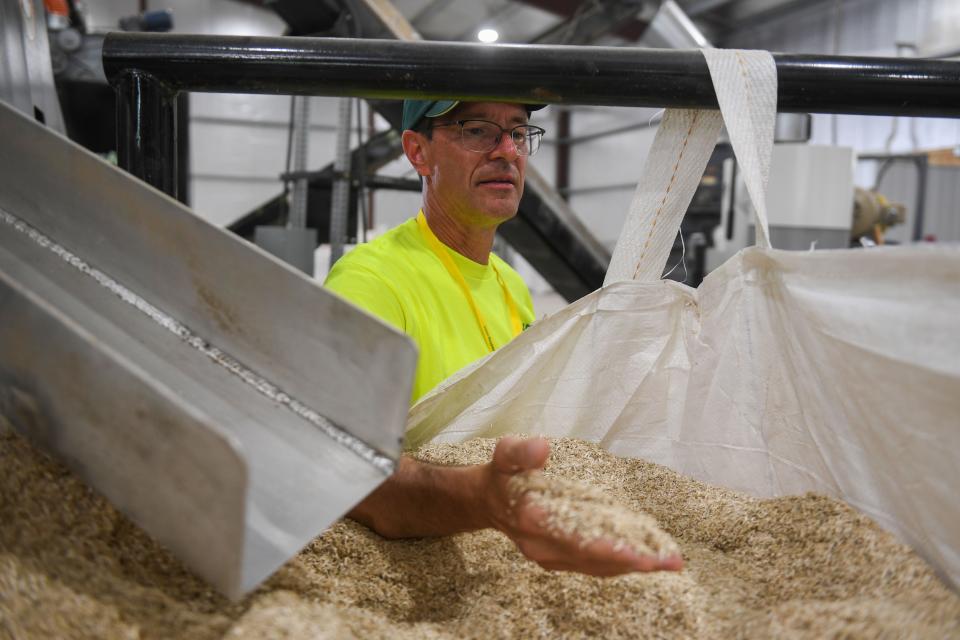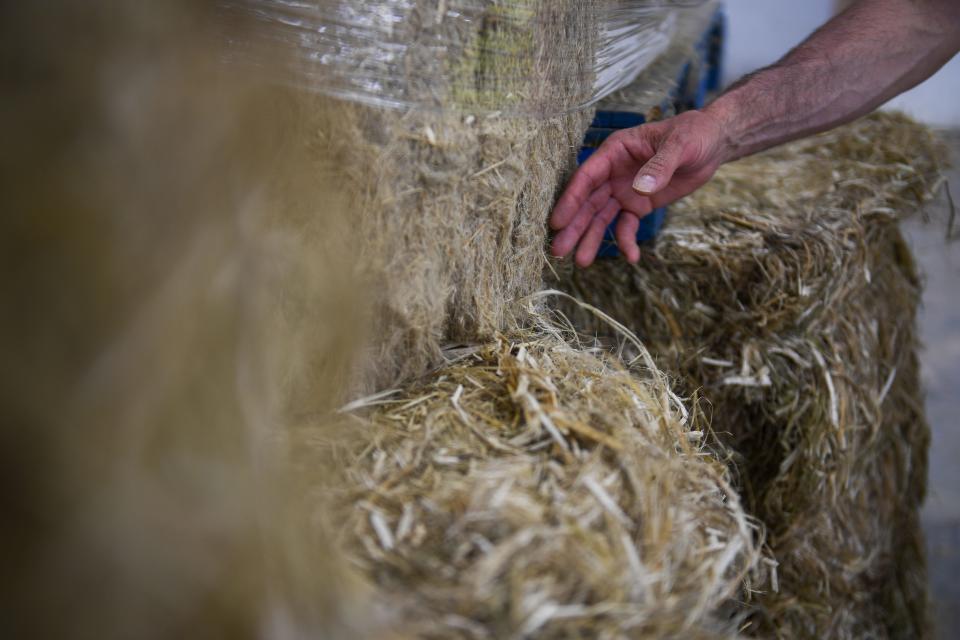SD industrial hemp bill would align THC testing regulation with federal standards
South Dakota lawmakers are proposing a bill that would lessen the burden on the state's industrial hemp industry by bringing a THC testing regulation in line with federal standards.
Sen. Joshua Klumb, R-Mitchell, introduced last week Senate Bill 117, an act to revise certain provisions under the state's industrial hemp laws.
The bill's most significant change includes an amendment to the testing of delta-9 tetrahydrocannabinol (THC) concentrations — the primary psychoactive component of cannabis — in industrial hemp. This crop is typically grown for its fibers, which can be used in certain consumer-grade products, like textiles and bioplastics. Cannabidiol (CBD) oils can also be extracted from the leaves, flowers and stalks of hemp to create soaps and lotions.

In South Dakota, the concentration of delta-9 THC in a hemp sample cannot exceed .3% to be considered legally-grown.
A sample that contains between .3% and .5% delta-9 THC concentration can be retested for compliance. If the suspect crop violates the .3% limit a second time, the entire lot of hemp the sample came from must be destroyed.
If the amended law is passed, the maximum threshold for a retesting a sample would be raised to 1% delta-9 THC.
On its face, this bill simply aligns South Dakota's testing requirements for industrial hemp with the U.S. Department of Agriculture's own regulations. The Agricultural Marketing Service, an agency within the USDA, implemented such testing requirements in a final rule that took effect March 22, 2021.
Rep. Oren Lesmeister, D-Parade, is one of the main sponsors of the bill. As a long-time advocate of the industrial hemp industry, he wants to lessen the burden on South Dakota's hemp producers, whose cash crop is already highly regulated.
Lesmeister said the proposed legislation would allow for a little leeway on THC concentrations in field-grown hemp, which can be sensitive to changes in weather and other factors. Because there are ways to remediate a negligent lot back under the .3% limit, the representative said his bill would prevent the unnecessary destruction of some of the state's harvest.
"We want to do everything we can to help not just the farmers, but the processors," Lesmeister told the Argus Leader. "We want to be No. 1 in this, but also we want to be No. 1 in doing it right."
That's not to say there isn't a slight financial incentive to this bill. South Dakota's industrial hemp industry is one of the most prolific in the U.S.: According to the 2022 National Hemp Report from the National Agricultural Statistics Service, USDA's data arm, the Mount Rushmore state came second in acres planted and harvested 2,550 acres, the most in the nation. The official results of the 2023 hemp harvest are expected to be released this spring.
With those numbers in mind, John Peterson, owner of Wakonda-based Dakota Hemp, said implementing the 1% THC limit would open the door to new, more productive varieties of hemp grown in the state.
Most hemp farmers in the state, Peterson said, are limited to "one or two" hemp seed types based on Canadian or U.S. varieties of the crop.
Dozens of other seed varieties sourced from around the world exist, but because of the stringent state regulations currently in place, they cannot be grown on a large scale, Peterson said.
With more seed options on the table, Peterson said farmers would be able to grow varieties of hemp better suited to their local climate.
"There are some varieties that flirt with that higher rate," Peterson said. "But then on the back end, they usually have some more desirable qualities to that plant. They might weigh a little bit more. You might get more tonnage, more yield out of those varieties."
However, the goal of this legislation is not to allow farmers to produce higher THC industrial hemp, South Dakota Industrial Hemp Association Lobbyist Katie Sieverding told the Argus Leader. Retested hemp samples would ultimately need to maintain a THC concentration below the .3% USDA standard.
"If we keep .5% and don't go to 1% … we're more strict than the USDA," Sieverding said.
SB 117 also includes some other revisions to the state's industrial hemp laws. This includes extending the validity of a processor license from 15 months to three years. Farmers applying for any industrial hemp license currently need to submit a criminal background check to the Division of Criminal Investigation and the Federal Bureau of Investigation, but the new law would only require subsequent background checks once every three years.

Additionally, the new law, if passed, would remove licensing requirements for growers and consumers to possess bales of industrial hemp. Sieverding said this would fix a "gap" within the state's current laws, in which hemp producers who let their license expire could be charged with a crime for illegally possessing a crop they grew.
"This just opens up the market for our farmers, so they don't have to run and and sell their bale," Sieverding said. "They can keep it on their land and use it as they see fit, even if they don't continue growing."
SB 117 will be heard Tuesday before the Senate Agricultural and Natural Resources Committee.
This article originally appeared on Sioux Falls Argus Leader: Relaxed THC testing limit proposed in South Dakota industrial hemp bill

